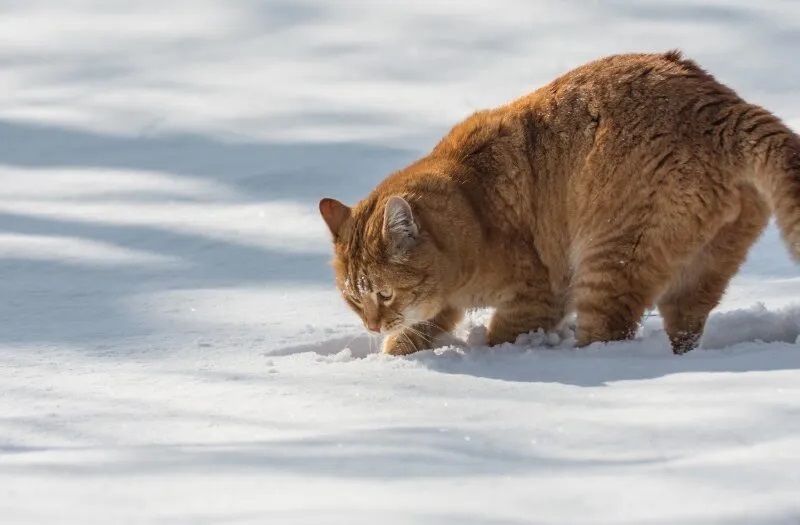Why Does My Cat Try to Bury Her Food?
Why Does My Cat Try to Bury Her Food?
They don’t like it!
If your cat doesn’t like the new food you’ve just switched to, they may attempt to bury it. This is comparable to how they bury their feces to avoid unpleasant odors or odours that may attract a bigger predator.
Like To Be Clean
Cats may be a lot of work, as any cat owner will attest. They’re most likely cleaning if they aren’t napping. This cleaning is mostly self-grooming, although they do like a clean environment.
Keep the odor hidden
Food should be covered or buried to keep other cats and predators away from it. On two levels, this is an excellent decision for wild cats. To begin with, concealing the fragrance reduces the likelihood of another cat discovering the food and consuming it. Second, it aids in the concealment of scent from prey animals with acute senses of smell. A prey species that smells blood or flesh is far more likely to leave the area, reducing the chances of a wild cat making another kill.
Hide Food for Later
On the exterior, your domestic cat may seem beautiful and fluffy, but on the inside, it retains impulses passed down from its wild forefathers. Wild cats cache food to keep it safe from other cats or scavengers, to keep it from rotting, or to have something to come back to when there isn’t any other food available.
Why Do Cats Scratch Around Their Food?
If you offer your cat huge portions of food that she doesn’t eat in one sitting, you may see them clawing at the food after they’re finished.
Why Do Cats Paw Around Their Food?
Cats’ natural instinct is to paw at food, which is a completely safe pastime. To hide their tracks and keep predators at away, cats may “fake cover” their food with scratching. They may even cover their plate with stuff like towels in certain conditions.
Why Does My Cat Scratch The Floor After Eating?
It’s merely your cat’s inclination to scratch the floor after a meal to defend himself from predators.
What to do if your cat’s behavior is a problem
If their cats’ instinctual food-burying routines aren’t causing any damage, many cat owners are content to leave them alone. However, if your cat is destroying your flooring or escaping and leaving wet food all around the home, you should take action. Some cats acquire a neurosis from their caching activity. This is particularly prevalent in houses with several cats, when the cats may feel like they’re vying for resources. They may get obsessed with hiding or burying their meals.
Conclusion
In order to avoid attracting predators, a cat in the wild may attempt to bury or hide any uneaten food. It’s also an effort to keep any other potential prey from becoming aware of the presence of a feline hunter. Because cats aren’t scavengers, they don’t bury food to eat later; it’s just for protection. Even if a cat has never gone outdoors, it still has a survival instinct; it’s only an issue of how much it affects them.








